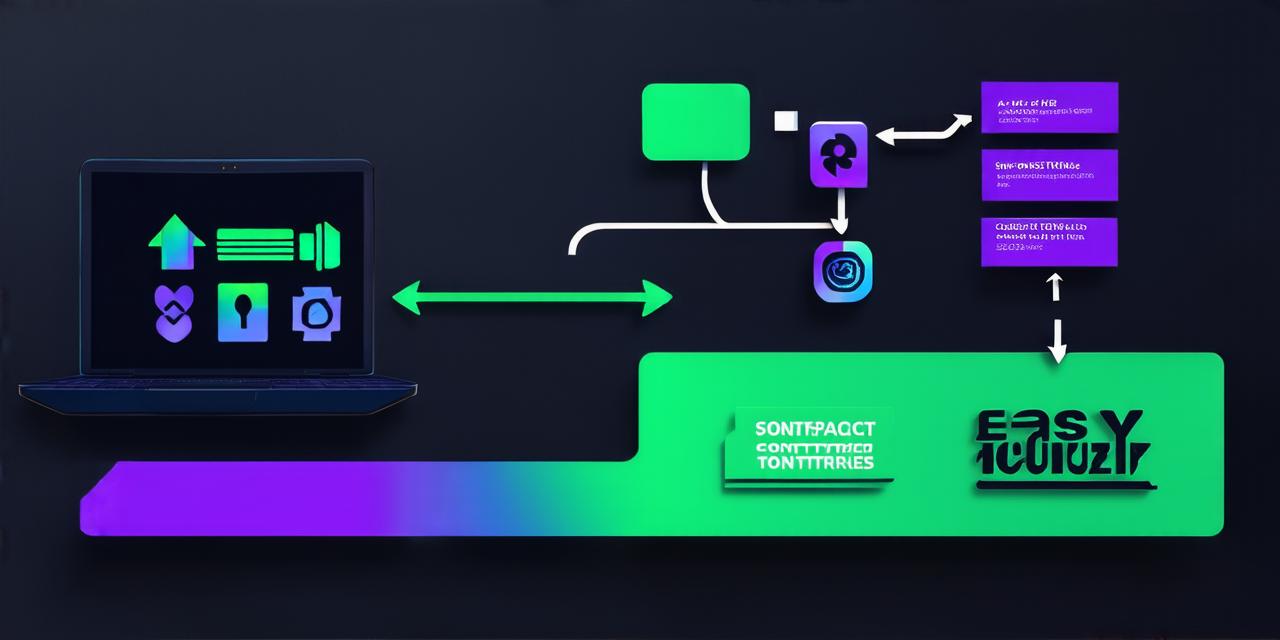Smart contracts are self-executing agreements with the terms of the agreement between buyer and seller being directly written into lines of code. These programs run exactly as programmed without any possibility of downtime, censorship, fraud or third-party interference. They are stored on a blockchain which is a decentralized, distributed ledger that records transactions across many computers in a secure and transparent manner.
Smart contracts have the potential to revolutionize the way we conduct business by automating processes and reducing the need for intermediaries. This article will explore what smart contracts are, how they work, and their benefits for businesses and consumers alike.
How do Smart Contracts Work?
Smart contracts are written in a programming language such as Solidity for Ethereum blockchain or Vyper for Hyperledger Fabric. They contain the logic and rules for executing an agreement, and these rules are stored on the blockchain. When a smart contract is executed, it triggers a series of pre-defined actions based on the terms written into the code.
For example, a smart contract for the sale of a house could include the following terms:
* The seller agrees to transfer ownership of the house to the buyer once the buyer pays the agreed-upon price.
* The buyer has until a certain date to pay the price, after which the seller cancels the contract and takes back the house.
* If the buyer pays the price before the deadline, the smart contract automatically transfers ownership of the house to the buyer.
Smart contracts are self-executing, meaning they do not require any intermediaries such as lawyers or banks to execute the agreement. This reduces the time and cost associated with traditional methods of contract execution.
Benefits of Smart Contracts
Smart contracts offer a number of benefits for businesses and consumers alike:
- Increased efficiency: Smart contracts automate processes, reducing the need for intermediaries and speeding up the execution of agreements.
- Transparency: All smart contract terms are stored on the blockchain, making them publicly accessible and transparent.
- Reduced costs: By eliminating the need for intermediaries, smart contracts can significantly reduce the cost of contract execution.
- Improved security: Smart contracts are stored on a decentralized ledger that is resistant to tampering and hacking.
- Enhanced trust: Smart contracts provide a secure and transparent method of executing agreements, increasing trust between parties.
Real-World Examples of Smart Contracts
Smart contracts are already being used in a variety of industries:
- Real estate: Smart contracts can be used to automate the process of buying and selling property, reducing the need for intermediaries such as lawyers and banks.
- Financial services: Smart contracts can be used to automate the process of issuing bonds, managing payments and executing trades.
- Supply chain management: Smart contracts can be used to track products through the supply chain, ensuring that all parties have access to the same information.
- Voting systems: Smart contracts can be used to create secure and transparent voting systems that are resistant to fraud.
FAQs
What is a smart contract blockchain?
A smart contract blockchain is a decentralized, distributed ledger that stores self-executing agreements written in code. These agreements are triggered by pre-defined actions based on the terms written into the code.
How do smart contracts work?
Smart contracts are written in a programming language and contain logic and rules for executing an agreement. When a smart contract is executed, it triggers a series of pre-defined actions based on the terms written into the code.
What are the benefits of smart contracts?

Smart contracts offer increased efficiency, transparency, reduced costs, improved security, and enhanced trust. They automate processes, eliminate intermediaries, and provide a secure and transparent method of executing agreements.
Are there any real-world examples of smart contracts?
Yes, smart contracts are already being used in a variety of industries such as real estate, financial services, supply chain management, and voting systems.
